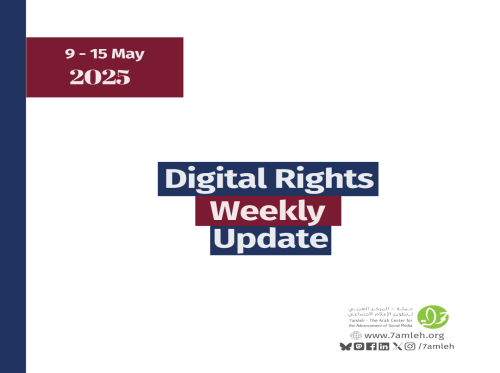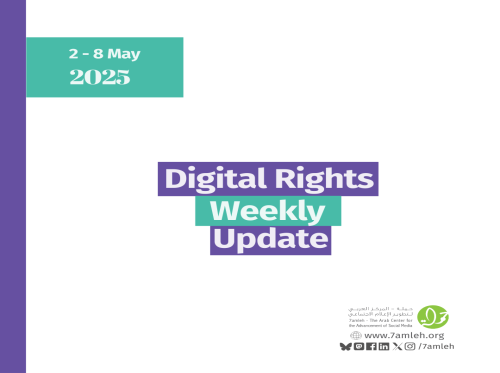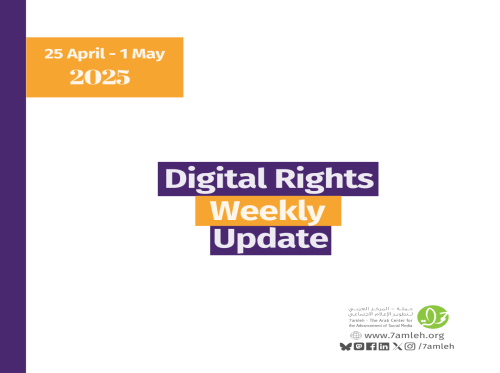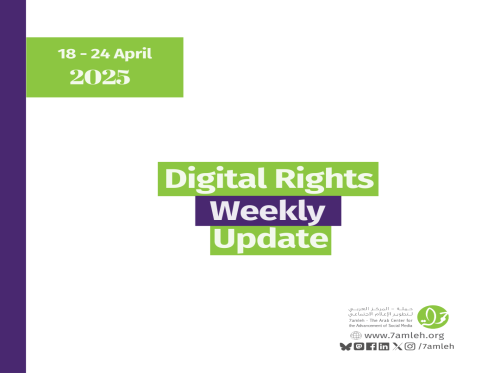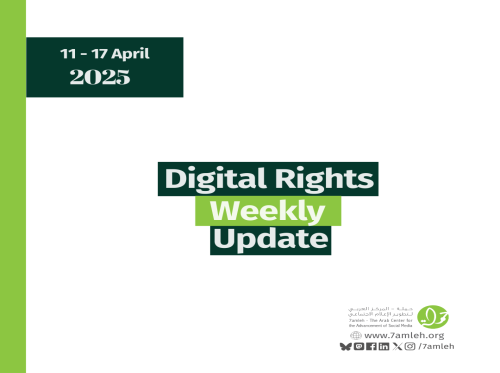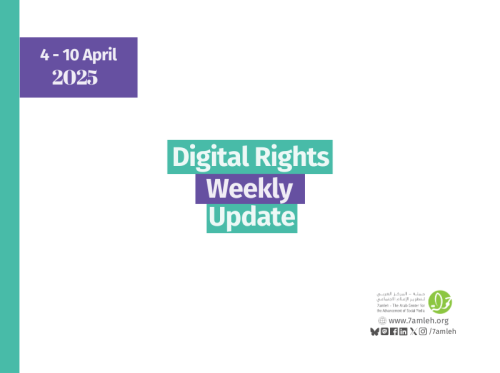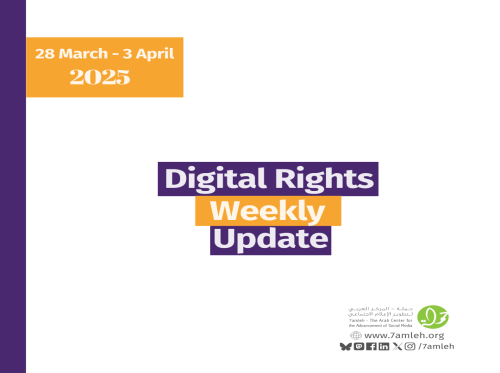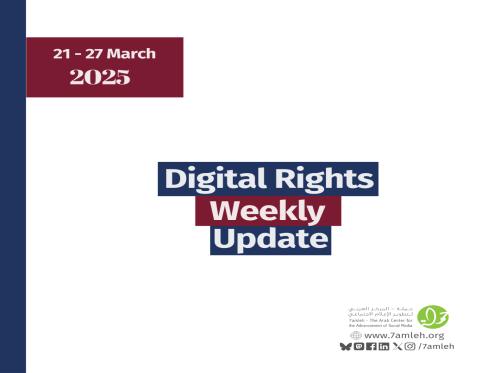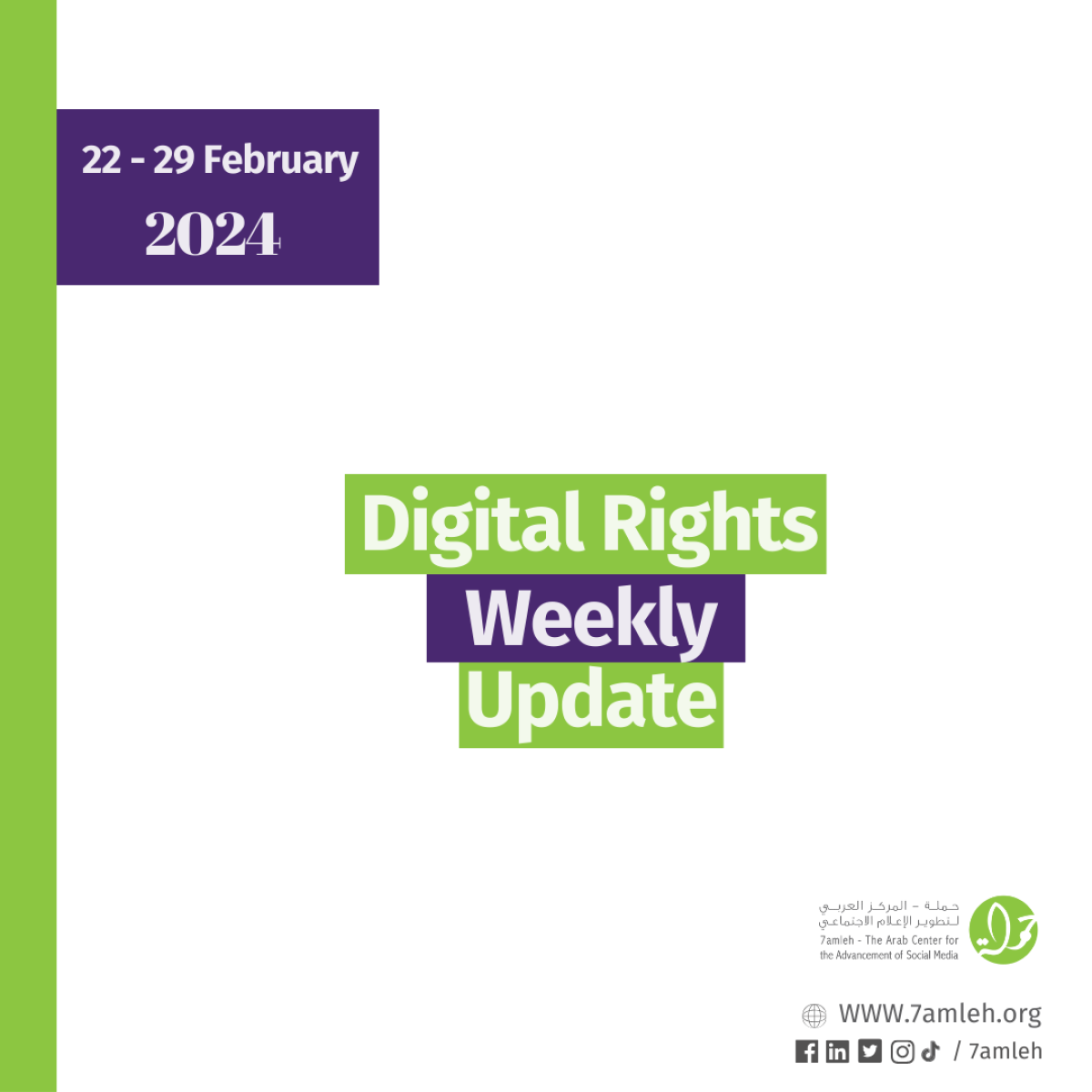
1.
7amleh’s Hashtag Palestine 2023 report shows real-world consequences of digital rights violations (English)
7amleh
In their new annual report, Hashtag Palestine 2023, 7amleh documents how censorship of Palestinian narratives and content is rampant alongside incitement and hate speech against Palestinians. Using data collected through 7or, their custom platform for tracking digital rights violations, the report analyses the impact of policies that disproportionately target Palestinians, often leading to arrest and persecution. It outlines a powerful set of recommendations to address digital challenges, advocating for a multistakeholder approach by states, companies and civil society to ensure digital safety and security for Palestinians. We spoke with Ahmad Qadi, head of 7amleh’s monitoring and documentation department, to discuss their latest report and why exposing digital rights violations, censorship and skewed policies is more urgent than ever.
2.
7amleh
7amleh - the Arab Center for the Advancement of Social Media, has released a new comprehensive report, “Racism and Incitement Index 2023”, that sheds light on the proliferation of hate speech and incitement to violence directed at Palestinian people and advocates for Palestinian rights on online platforms. The report provides crucial insights into the gravity of the digital rights situation and offers actionable recommendations to combat this concerning trend. Throughout the past year, 7amleh's documentation efforts have uncovered a disturbing surge in hate speech and incitement targeting Palestinians across various online platforms.
3.
Rights watchdog alarmed at 'arbitrary removal' of Irish social media posts about Palestine (English)
The Journal
A HUMAN RIGHTS watchdog has expressed alarm at what it believes is “arbitrary removal” of social media posts by Irish companies and organisations, seemingly in connection with Israel’s war on Gaza. The Irish Council for Civil Liberties (ICCL) said it was very concerned at the practice which it warned could have a “lasting chilling effect” on public debate if social media companies aren’t held accountable. Meta, the owner of Facebook and Instagram, both of which have seen complaints levelled against it for alleged censorship of Palestinian content, told The Journal that it rejects any claim about it “systemically suppressing” such voices on social media. However, the company admitted that it has makes “errors” in moderating content which it accepted are frustrating for users. The ICCL’s intervention is on foot of incidents including Basketball Ireland’s Instagram getting temporarily disabled, which came amid a furore over the women’s national team’s facing off against Israel. A Dublin newspaper also saw its advert account with Facebook temporarily suspended after it sought to boost coverage of Palestine-related debates in Dublin City Council.
4.
Misinformation, censorship and propaganda: The information war on Gaza (English)
Wired Middle East
Since 7 October, both sides of the Israel-Hamas war have sought to influence public opinion. A dense fog of war, unprecedented in both scale and intensity, has descended. The deliberate dissemination of false or inaccurate information (disinformation) and the unintentional sharing of inaccurate or misleading information (misinformation) in Gaza on social media platforms have become commonplace, leaving people to grapple with a disorientating barrage of lies and propaganda.This information war has numerous components, including the dissemination of false narratives, the removal of content from its original context, and the widespread use of fake accounts.
5.
Today’s Propaganda Machine: How social media is censoring voices for Palestine (English)
Ceylon today
Social media platforms are essential conduits for international discourse in the digital era, enabling discussions on a wide range of subjects such as human rights and social justice. But, in the midst of this digital connectivity, an alarming pattern has surfaced: the suppression of voices that support Palestine. In addition to stifling free expression, this restriction helps spread false information and propaganda, which feeds into a narrative that stifles discussion and upholds injustice. Social media sites, which are frequently hailed as bulwarks of unrestricted speech, have come under heavy fire for how they have handled information that supports the Palestinian cause. Opponents contend that these platforms unjustly suppress material that highlights the suffering of Palestinians while permitting hate speech and false information to go unchallenged.
Related Articles
Subscribe to Our Email Alerts
And stay updated with our latest activities, news, and publications!

